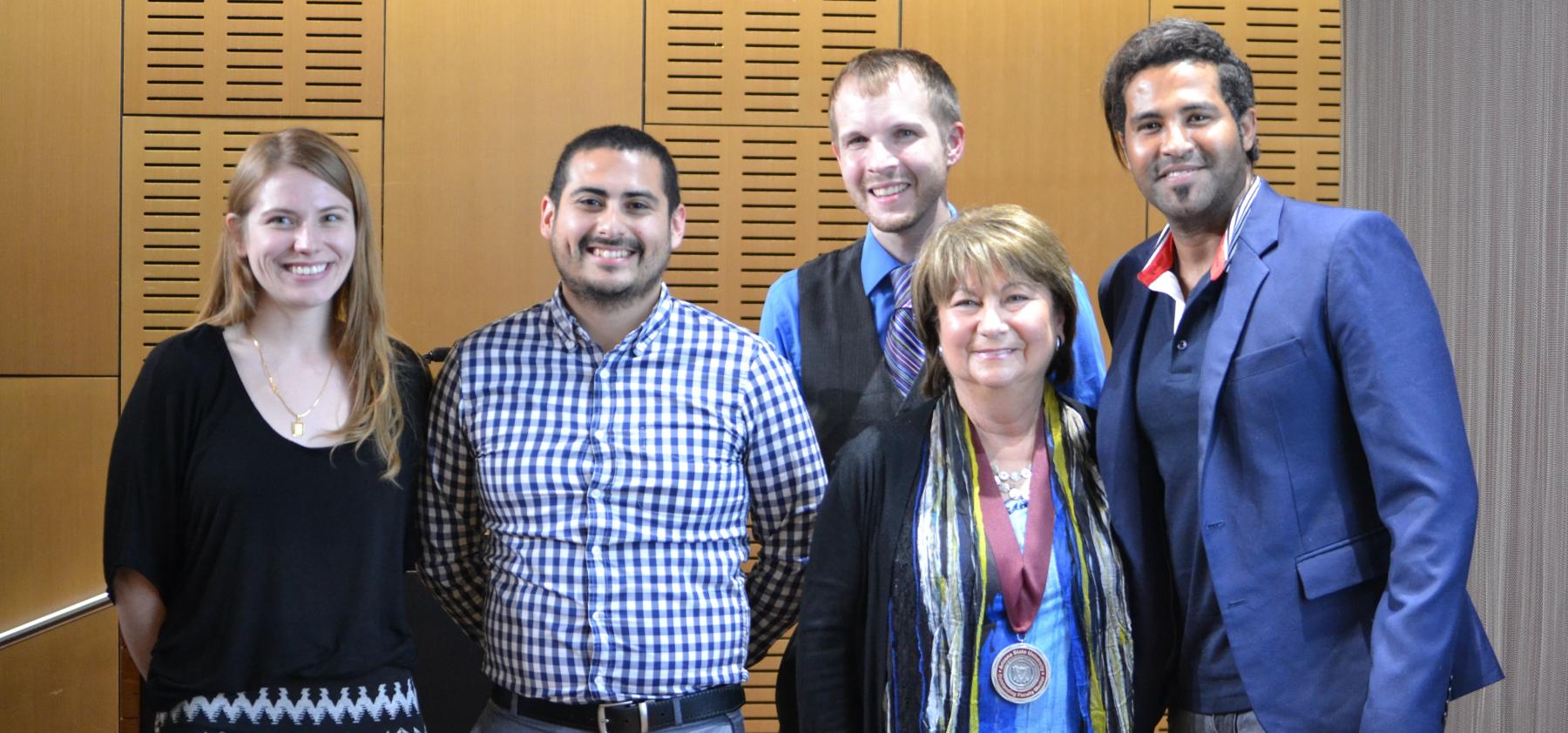
Outstanding Graduate Faculty mentoring spotlight: Dr. Barbara Klimek, Watts College of Public Service and Community Solutions
The Graduate College’s Outstanding Faculty Mentor Awards showcases the importance of faculty-student relationship-building. At the 2018-2019 OFMA ceremony on January 30, four outstanding student-nominated ASU faculty members were selected by a panel of their peers as recipients of this year’s award. As part of this larger work to promote and highlight the efforts of outstanding mentors at ASU, the Graduate College is following up with 2018-2019 recipients Gabriel Shaibi, Anca Delgado, Barbara Klimek and Linda Luecken in a series of articles highlighting the advice and experiences of these exemplary faculty members around mentorship. For this installment, we asked Barbara Klimek, Outstanding Instructional Faculty Mentor, about her mentoring inspirations, practices and tips for both students and faculty new to mentoring.
For Klimek, education has always been about creativity, the opportunity to try different means of learning, and the “a-ha” moment when a student connects with their research or subject matter. As early as high school and college, she knew she wanted to help others attain their educational goals, tutoring her classmates in math and science. Watching students who had once disliked a subject learn to enjoy it, she says, was developmental to her fondness for teaching.
Now as a clinical associate professor, the Master’s of Social Work coordinator for Watts College’s School of Social Work and the director of the Office of Global Social Work guides the burgeoning academic careers of a new generation of students, inspiring – and more importantly, challenging – them through intentional conversations about their educational goals, their research and their career possibilities.
Education is about “more than just the class and basic curricular learning,” Klimek notes. “It’s about engaging students in creative ways of discovery and learning.”
A creative environment is important in promoting problem-based, self-directed learning. It allows students not only to learn subject the matter but also how to learn.
The same intentional guidance shapes Klimek’s advising strategy, too. As she helps students advance through the Master’s in Social Work program, she is at once a coach – helping students navigate their most immediate hurdles – and mentor, encouraging students to situate their academic pursuits within the larger context of their career goals.
“Dr. Klimek is compassionate, caring and loves teaching,” said former student Mohamed Abdalla. “She was committed to my success and held me accountable throughout my academic career, from prospectus defense to final refinement of my ideas and topic, both allowing my intellectual growth and challenging me.”
A heavy component of Klimek’s mentoring success, note current and former students, is the tenacity with which she supports – pushes, even – students to expand and reconceptualize their research through publication, conference presentations and applied projects.
And this hands-on approach does not merely apply to current students. One of the most rewarding elements of teaching and mentoring, Klimek says, is watching her students grow professionally, “becoming colleagues versus students.”
“It has been the greatest reward I could ask for,” she said, “seeing many of my students move into professional careers, yet come back for advice. For Klimek, mentorship is a relationship that has stages, but once established, it grows and continues long past a student’s degree completion.
“To this day,” said former student Elizabeth Mody, “Dr. Klimek is an advocate for my research. She sends me opportunities to submit abstracts for international conferences, applications for fellowships and special opportunities to connect with community members as partners in research.”
This intentionality is strategic and is key to Klimek’s mentoring philosophy. At the end of the day, she says her mentoring approach prepares her students professionally for diverse career pathways. What “provides the opportunity to be creative,” she explains, is to encourage students, “to try different ways of learning and applying what they discovered to different environments, contexts and situations.”
By urging students through guiding question to contextualize their research — and to really question the significance and purpose behind it — Klimek encourages her students to develop a deeper understanding of their learning process. “It’s about self-discovery.”
And for Klimek’s students, this brand of reflective, guided learning is what makes her a particularly impactful mentor.
“She is constantly trying to think outside the box as to how she can provide her students with better learning experiences,” said Elizabeth Mody.
“At the beginning of my Master’s program,” said former student, Meghan McDermott, “I didn’t have confidence in myself. I always got good grades, but I never stepped outside of my comfort zone. Dr. Klimek gave me the push I needed to achieve a success I never thought I was capable of.”
“It’s because of her that I now have confidence in myself,” Meghan continued, “and have continuously pushed myself more and more. I now have an excellent job and an abundance of determination. I can honestly say I would not be where I am today without her being in my corner.”
Click this link to learn more from Outstanding Faculty Mentors.
More stories from the Graduate Insider

Graduate education is an adventure
About eighteen months ago, I set out on a journey walking the islands of the Dodecanese during a sailing trip in Türkiye and Greece with several friends. Along the way, I found winding paths, timeless villages and breathtaking views of sea and sky. That experience got me thinking about how adventure shows up in other parts of life, especially in learning.

Finding your flow: Managing the graduate writing process
Graduate writing can feel like a marathon—long, demanding, and full of unexpected detours. But as Tristan Rebe, Program Manager for the Graduate Writing Center, reminded students in the Grad15: Managing the Writing Process webinar, writing is not about perfection—it’s about progress. “The best dissertation is a done dissertation,” Rebe said, quoting Robert Frost: the best way out is through.
